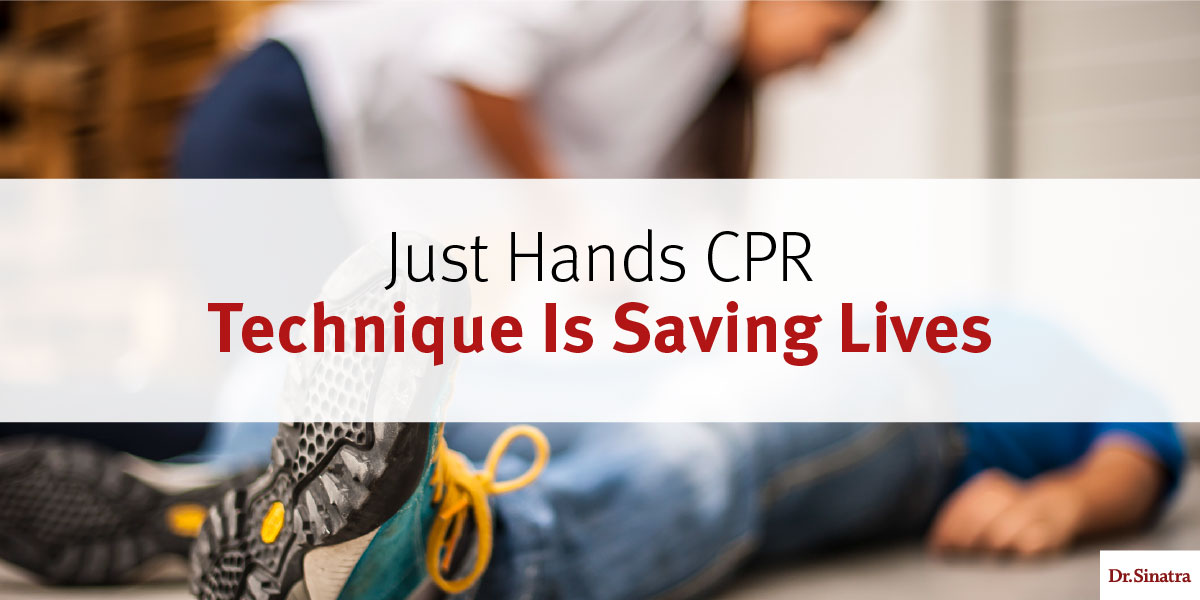
As a cardiologist it greatly concerns me that every day lives are needlessly lost to cardiac arrest simply because no one at the scene knows how to do CPR. The hard statistics are that less than one third of people suffering from cardiac arrest get any help from a bystander. This is a huge issue since getting CPR under these circumstances is the key to survival!
In recent years, a new "just hands" CPR technique has emerged, one that’s far less intimidating for non-medical folks. Unlike traditional CPR, the "just hands" CPR technique doesn't require that you know the ratio compressions to mouth-to-mouth breathing. Rather the goal is to encourage people to feel they can take action to save a life if they witness someone in cardiac arrest.
Two Steps to the “Just Hands” CPR Technique:
1. Call 911 if you encounter someone who has collapsed due to cardiac arrest.
2. Then, administer "just hands" CPR, pushing hard and fast in the center of the chest, not stopping until help arrives. The American Heart Association recommends mentally using the song "Stayin' Alive" to time your compressions since it has the correct beat for administering the "just hands" CPR technique.
A few years ago, my wife Jan and I were trained in the “just hands” CPR technique at a “Go Red” fundraiser in Ocala, Florida. While I initially questioned the wisdom of not giving mouth-to-mouth, I've learned that many people stand idly by when someone goes into cardiac arrest because they don't know the traditional CPR methods. In fact, statistics show that the "just hands" CPR technique doubles—or even triples—the victim’s chances of surviving cardiac arrest.
I also want to point out that there are several people who should not receive the “just hands” CPR technique, including: infants and children, drowning victims, and adults whose cardiac arrest is due to respiratory arrest when the victim is not breathing. In those cases the first step is to call 911; the second step is to administer traditional CPR with both compressions and mouth-to-mouth.
I also personally believe that if you feel comfortable enough to give mouth-to-mouth along with compressions to any cardiac arrest victim, it’s still the better way to go.


